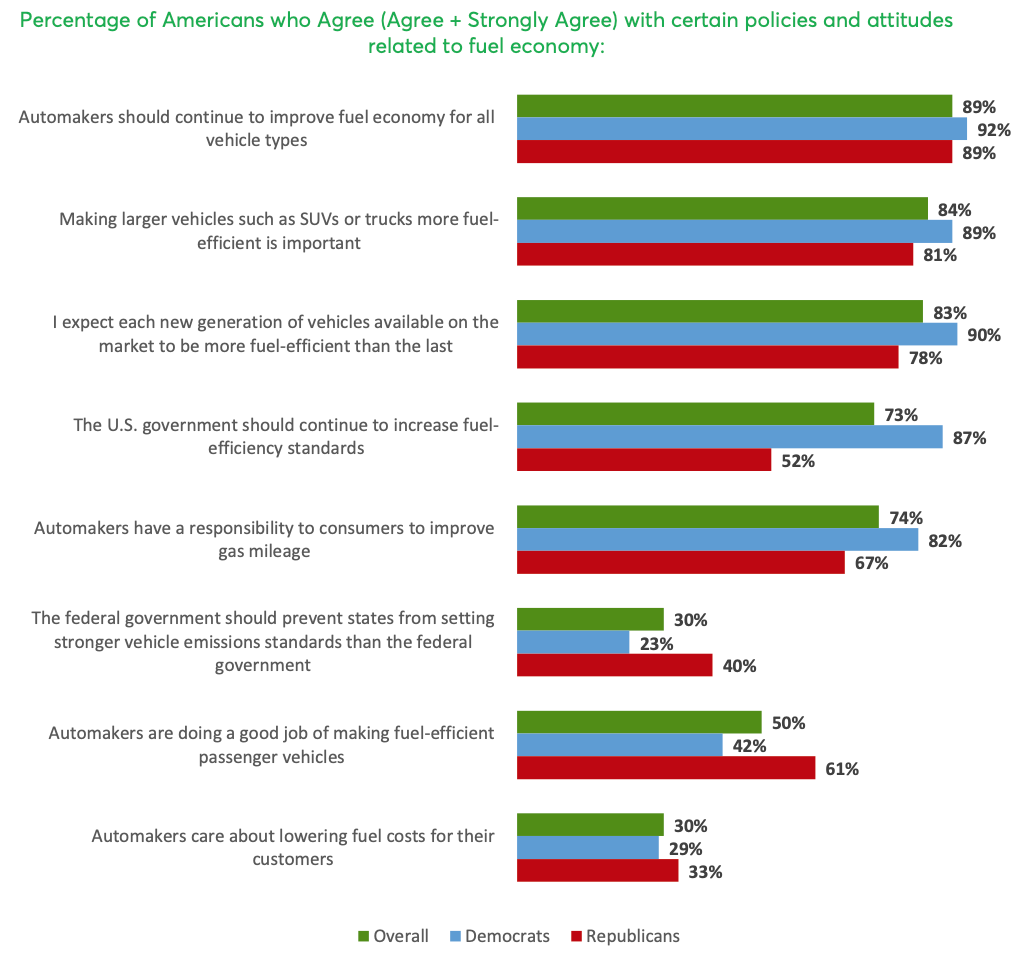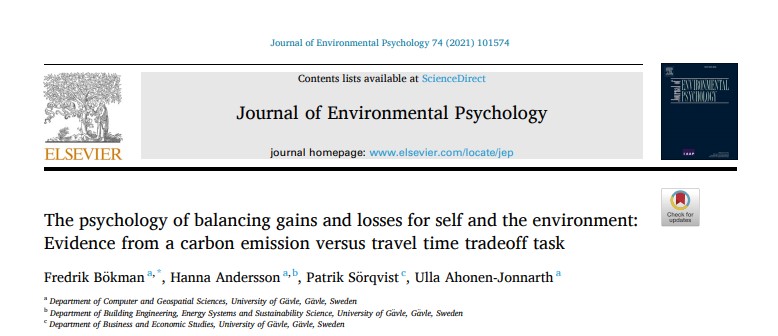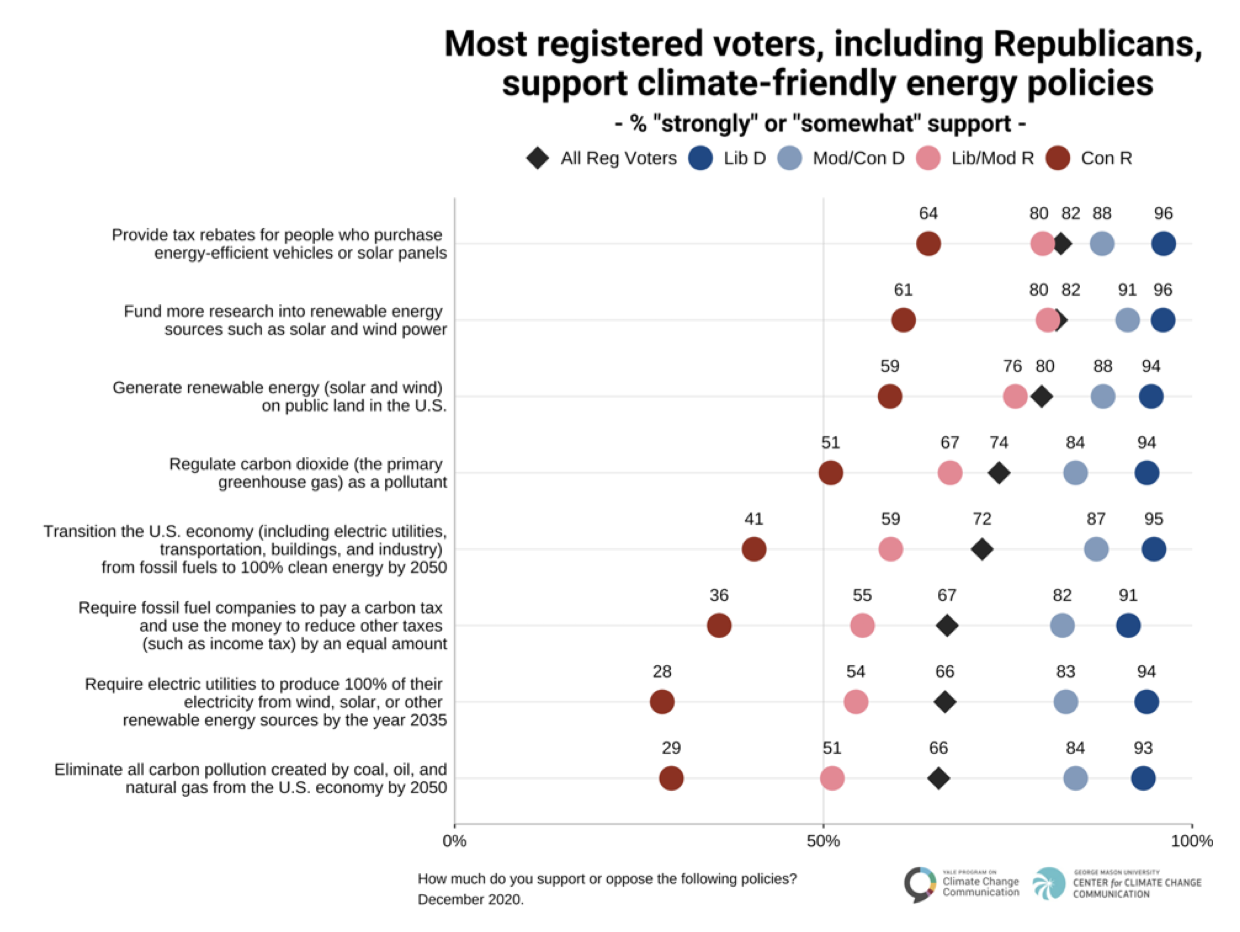Resources
Search below for resources covering the intersection of climate engagement, social science and data analytics.
RESULTS
Poll: Consumer Attitudes Towards Fuel Economy
A recent survey to better understand American attitudes towards fuel economy, particularly among prospective vehicle buyers (those who intend to purchase or lease a vehicle within the next two years) found:
- Room for improvement: Prospective buyers who currently have a vehicle most commonly selected fuel economy as one of the attributes of their vehicle that has the most room for improvement (42%); the next-highest selections were purchase price (25%) and maintenance costs (25%).
- Importance of fuel economy to vehicle selection: 64% of Americans who are planning to buy or lease a vehicle within the next two years say that fuel economy is ‘extremely important’ or ‘very important’ to them when considering what vehicle to get next. Only 6% say it is ‘not very important’ or ‘not important at all.’
- Key expectations for automakers: More than 7 in 10 Americans ‘agree’ or ‘strongly agree’ that:
- automakers should continue to improve fuel economy for all vehicle types;
- automakers have a responsibility to consumers to improve gas mileage; and
- each new generation of vehicles available on the market is expected to be more fuel-efficient than the last.
Poll: Public Supportive of Electric Vehicle Moves from both Automakers & Government
Voters support U.S. automakers transitioning to zero-emission vehicles, as well as a host of specific legislative pieces that would help U.S. automakers transition to that goal, according to a survey examining voter perceptions of electric vehicles (EVs.)
- 63% of voters support U.S. automakers transitioning to zero-emissions vehicles.
- Voters also display broad support specific legislative initiatives to help the U.S. transition to zero-emission cars, trucks, and buses, including:
- Passing legislation to increase domestic manufacturing of zero-emission electric vehicles, batteries and component parts (58%)
- Expanding tax incentives and point-of-sale vouchers for zero-emission cars and trucks (57%)
- Providing grants to school districts to purchase zero-emission school buses (62%)
- Funding state and local agencies developing local electric vehicle charging infrastructure (59%)
- Voters are more than three times as likely to believe a shift to electric vehicles would be mostly positive (51%) than mostly negative (15%). Over half of voters believe investments in electric cars, trucks and buses by local, state, and federal government would mostly help the health of Americans, air pollution, and reducing asthma.
The psychology of balancing gains and losses for self and the environment: Evidence from a carbon emission versus travel time tradeoff task
Motivational messaging can encourage people’s willingness to make trade-offs in favor of the environment. In this study, researchers find that giving people information about how longer air travel times reduce carbon emissions make people more willing to have longer travel times. This willingness was even higher for those who were told the travel time would be much longer, rather than just a little longer. Finally, the authors also find that the effects of messaging are strongest among those with higher levels of environmental concern. Members interested in encouraging trade-offs in favor of the environment should consider motivational information framing.
- The share of U.S. adults who say they are likely to purchase an EV in the next decade (39%) is up 6 percentage points since March 2019. Interest in hybrids has remained steady during the same period.
- Concerns about both price and range of the vehicles were also cited as primary concerns, but the inconvenience of finding local charging stations topped the list of reasons why people said they would not consider switching in the next decade, with 58 percent saying it is a major reason and 21 percent saying it is a minor reason.
- Just 7% of respondents said they currently use solar panels or other renewable resources to produce electricity in their home, but an additional 38% said they are considering doing so in the next decade.
- Respondents who make less than $50,000 annually were nearly 20 points more likely than respondents who earn over $100,000 annually to say they wouldn’t consider installing renewable infrastructure, at 61% and 42%, respectively.
Poll: Most Voters Support Ambitious Climate Action
Poll: Washington Voters Support Full Transition to Electric Cars by 2030
- 76% of Washington voters have a "very" or "somewhat positive" opinion of electric vehicles
- 59% support a policy requiring new cars in Washington state to be electric starting in 2030.
- By a margin of more than 12-to-1, voters believe ending the sale of new gas-powered vehicles in 2030 would have a positive effect on climate change (75% to 6%) and would benefit the health of people in the state (73% to 5%).
Poll: Americans continue to strongly support rail development
- 75% of Americans agree that we should be shifting more trips to passenger rail and public transit to address the impacts of transportation on climate change
- The majority of Americans – 6and 65 per cent – view public transit (64%) and passenger rail (65%) favorably after the pandemic, with support rising from pre-pandemic levels for both public transit (58%) and passenger rail (59%)
- Nearly half of all Americans think we should be investing more in public transit (47%) and passenger rail (46%)
State energy profile
A surveyed of more than 1,100 current car shoppers found:
-
Word-of-mouth from friends, family, and coworkers has the biggest impact on what vehicle people buy, with 52% of respondents saying it had influenced their decision.
-
Data-backed organizations like Consumer Reports and J.D. Power ranked second on the list of influences for car shopping, with 33% of respondents saying this had influenced them.
Iowa Voters Support Climate Action
Large majorities of Iowa voters want their elected officials to reduce global warming and increase clean, renewable energy, and are worried about climate change, having experienced the impacts of extreme weather. These concerns translate to support for candidates backing specific policies (poll toplines are available here).
Pagination
- Previous page
- Page 5
- Next page



